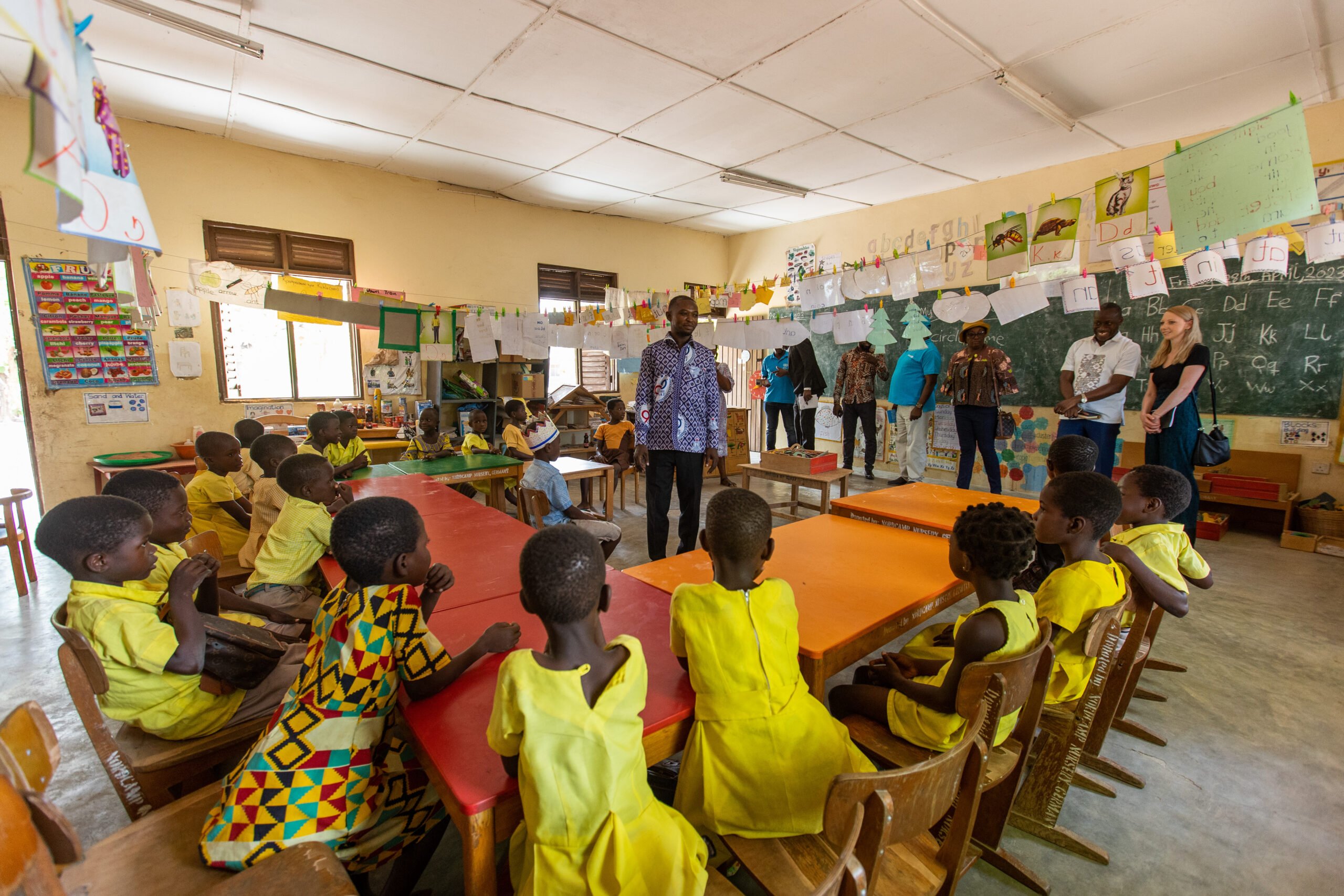How do we ensure we tackle learning poverty?
Our Learning Societies portfolio co-lead Ross Hall, alongside Kwame Akyeampong, Professor of International Education and Development at the Open University and Co-chair of the Global Education Evidence Advisory Panel (GEEAP), recently tackled this question in an opinion piece for New African Magazine.
The piece is a response to the recent African Union (AU) Summit in Addis Ababa, where the AU designated 2024 as the Year of Education. Hall and Akyeampong argue that this is a positive signal of AU Member States’ commitment to achieving UN Sustainable Development Goal 4 (SDG4), which seeks to “ensure inclusive and equitable quality education and promote lifelong learning opportunities for all.”
However, they caution that education systems must be grounded in evidence if they are to succeed, explaining that “learning outcomes will not improve unless teaching and learning practices are based on sound science about how children learn best”. To illustrate this, the piece explores collaborative efforts supported by the Foundation that can serve as blueprints for effective evidence-based interventions aimed at ensuring all children have access to a quality education.
They begin by discussing the Child Learning and Education Facility (CLEF) coalition in Côte D’Ivoire. Spearheaded by the Ivorian government, CLEF brings together a unique collaboration of 16 leading cocoa and chocolate companies, key government stakeholders, and two foundations, all working together towards the shared goal of improving quality education and preventing child labor in the cocoa growing regions of Côte d’Ivoire.
The authors also cite the work of the Foundation’s Education Lab (EdLab) in Ghana. EdLabs provide a space for collaborative research which can be shared regionally and nationally to improve education across the countries. The Jacobs Foundation has also established EdLabs in our other core geographies of Côte d’Ivoire, Switzerland, and Colombia, with the ultimate aim of spearheading long-term change in education ecosystems by encouraging the incorporation and implementation of evidence in national policies.
To achieve SDG4, countries must invest in building their evidence capabilities to achieve the goals set out by the AU as a path to achieving quality education for all. This call was recently echoed in an opinion piece by Ghanaian President Nana Akufo-Addo and Former President of Tanzania and Chair of the Board of Directors of the Global Partnership for Education Jakaya Kikwete, who reinforced the importance of multistakeholder collaborations to unlock the next generation’s potential. Facilitating collaborative efforts to improve the uptake of evidence in national policy and implementation, such as CLEF and EdLabs, is a critical part of our commitment to actively stimulate and inspire systemic change worldwide.
Read the full piece here.
